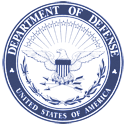Superseded
This policy memo has been superseded by the 2012 SAMM Rewrite.
 | DEFENSE SECURITY COOPERATION AGENCY | 11/21/2006 |
MEMORANDUM FOR :
SEE DISTRIBUTION
SUBJECT :
Limited Special Authority under Acquisition and Cross Servicing Agreements (ACSAs) (DSCA 06-48) [SAMM E-Change 67]
Effective immediately, Chapter 11 of the Security Assistance Management Manual (SAMM), Section C11.1. is updated as regards use of ACSAs. Special authority was enacted in Section 1202 of the National Defense Authorization Act for Fiscal Year 2007 (P.L. 109-364) until September 30, 2008, to permit the Secretary of Defense to treat "covered military equipment" (defined as Significant Military Equipment in U.S. Munitions List Categories I, II, III, VII, XI, and XIII) as logistics support, supplies, and services under ACSA agreements for the purposes of providing such equipment for periods not longer than one year to military forces of a nation while participating in combined operations with the United States in Iraq or Afghanistan, when the equipment is required for personnel protection or to aid in the personnel survivability of those forces. Also, the description of items that may not be provided under an ACSA has been updated to reflect the understanding of the conferees in the Conference Report to accompany the National Defense Authorization Act for Fiscal Year 2007 (H.R Report 109-702).
This change will be included in the automated version of the SAMM found on the DSCA Web Page as SAMM E-Change 67. Questions regarding this policy should be directed to Mr. Micheal Slack, DSCA/STR/POL, at (703) 601-3842 or e-mail: michael.slack@dsca.mil. Questions regarding SAMM policy should be directed to Ms. Kathy Robinson, DSCA/STR/POL, at (703) 601-4368 or e-mail: kathy.robinson@dsca.mil.
Freda J. Lodge
Principal Director
Strategy
ATTACHMENT :
As stated
DISTRIBUTION :
DEPUTY ASSISTANT SECRETARY OF THE ARMY
DEFENSE EXPORTS AND COOPERATION (DASA-DEC)
DEPARTMENT OF THE ARMY
DEPUTY ASSISTANT SECRETARY OF THE NAVY
INTERNATIONAL PROGRAMS (NAVIPO)
DEPARTMENT OF THE NAVY
DEPUTY UNDER SECRETARY OF THE AIR FORCE
INTERNATIONAL AFFAIRS (SAF/IA)
DEPARTMENT OF THE AIR FORCE
DIRECTOR, DEFENSE LOGISTICS AGENCY
DIRECTOR, NATIONAL GEOSPATIAL-INTELLIGENCE AGENCY
DIRECTOR, DEFENSE THREAT REDUCTION AGENCY
DIRECTOR, DEFENSE REUTILIZATION AND MARKETING SERVICE
DIRECTOR, DEFENSE CONTRACT MANAGEMENT AGENCY
DIRECTOR, DEFENSE INFORMATION SYSTEMS AGENCY
DIRECTOR, DEFENSE LOGISTICS INFORMATION SERVICE
DEPUTY DIRECTOR FOR INFORMATION ASSURANCE,
NATIONAL SECURITY AGENCY
DEPUTY DIRECTOR FOR SECURITY ASSISTANCE,
DEFENSE FINANCE AND ACCOUNTING SERVICE - DENVER CENTER
CC :
STATE/PM-RSAT
USDP/ISP
DISAM
USASAC
SATFA TRADOC
NAVICP
NETSAFA
AFSACv AFSAT
JFCOM
SOCOM
EUCOM
CENTCOM
NORTHCOM
PACOM
SOUTHCOM
CHAPTER 11
SPECIAL PROGRAMS AND SERVICES
C11.1. ACQUISITION AND CROSS-SERVICING AGREEMENTS (ACSAS)
ACSAs are Department of Defense (DoD) agreements negotiated on a bilateral basis with nations designated by the Secretary of Defense as ACSA-eligible. To be designated as ACSA-eligible, a country must either be a member of the North Atlantic Treaty Organization (NATO) or have a defense alliance with the United States (U.S.); permit stationing of U.S. troops; allow pre-positioning of U.S. assets; or host U.S. Forces' exercises. Support is generally provided on a reciprocal basis. Payments may be made in cash, replacement in kind or equal value exchange - countries pay the DoD rate (not the Foreign Military Sales (FMS) rate). Except for contingencies, humanitarian, and foreign disaster efforts, annual (fiscal year) ceilings apply. 10 U.S.C. 2341-2350 (reference (ce)) authorizes the use of ACSAs. DoD Directive 2010.9 (reference (cf)) contains the policy for these agreements. The Chairman of the Joint Chiefs of Staff has primary responsibility for these agreements.
C11.1.1. Standard Provision of Logistics Support, Supplies, and Services Under an ACSA.
C11.1.1.1. What MAY Be Provided Under an ACSA? ACSAs permit the United States to provide logistics support, supplies, and services to include food, billeting, transportation (including airlift), petroleum, oils, lubricants, clothing, communication services, medical services, ammunition, base operations support (and construction incident to base operations support), storage services, use of facilities, training services, spare parts and component, repair and maintenance services, calibration services, and port services. Also permitted are the temporary use of general purpose vehicles and other non-lethal items of military equipment that are not designated as significant military equipment (SME) on the U.S. Munitions List in the International Traffic in Arms Regulations (ITAR) (reference (n)).
C11.1.1.2. What MAY NOT Be Provided Under an ACSA? ACSAs do not permit transfer of weapons systems; initial quantities of replacement and spare parts for major end items of equipment covered by tables of organization and equipment, tables of allowances and distribution, or equivalent documents; major end items of equipment; guided missiles; naval mines and torpedoes; nuclear ammunition and included items such as warheads, warhead sections, and projectiles; guidance kits for bombs or other ammunition; and chemical ammunition (other than riot control).
C11.1.2. Temporary Authority to Use ACSA to Lend Certain Military Equipment to Foreign Forces in Iraq and Afghanistan for Personnel Protection and Survivability. Notwithstanding paragraph C11.1.1 above, special authority was enacted in Section 1202 of the National Defense Authorization Act for Fiscal Year 2007 (P.L. 109-364) to permit the Secretary of Defense to treat "covered military equipment" (defined in Section 1202 as SME in USML categories I, II, III, VII, XI, and XIII) as logistics support, supplies, and services under ACSA agreements for the purposes of providing such equipment to military forces of a nation while participating in combined operations with the United States in Iraq or Afghanistan, when the equipment is required for personnel protection or to aid in the personnel survivability of those forces. Use of this authority requires a determination by the Secretary of Defense, with concurrence of the Secretary of State that it is in the national security interest to provide the equipment. Equipment may not be provided for a period longer than one year. This authority expires on September 30, 2008.
